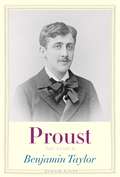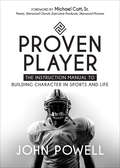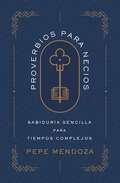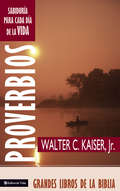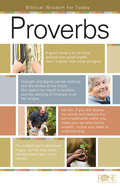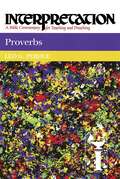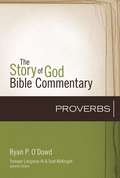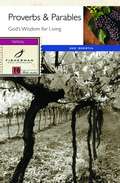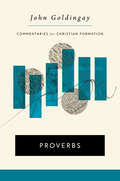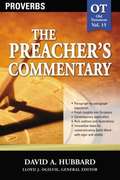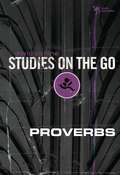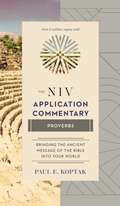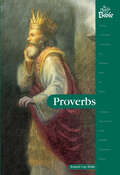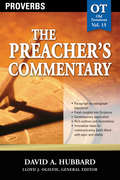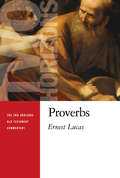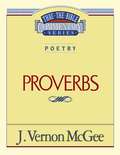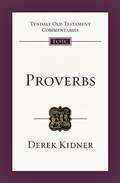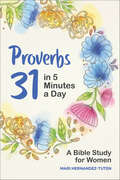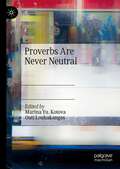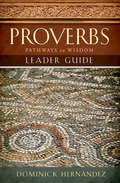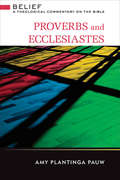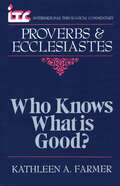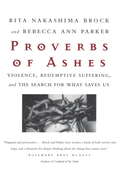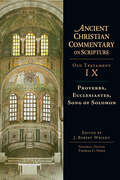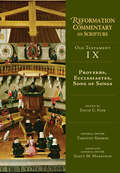- Table View
- List View
Proust
by Benjamin Taylor"Taylor's endeavor is not to explain the life by the novel or the novel by the life but to show how different events, different emotional upheavals, fired Proust's imagination and, albeit sometimes completely transformed, appeared in his work. The result is a very subtle, thought-provoking book. "--Anka Muhlstein, author of Balzac's Omelette and Monsieur Proust's Library Marcel Proust came into his own as a novelist comparatively late in life, yet only Shakespeare, Balzac, Dickens, Tolstoy, and Dostoyevsky were his equals when it came to creating characters as memorably human. As biographer Benjamin Taylor suggests, Proust was a literary lightweight before writing his multivolume masterwork In Search of Lost Time, but following a series of momentous historical and personal events, he became--against all expectations--one of the greatest writers of his, and indeed any, era. This insightful, beautifully written biography examines Proust's artistic struggles--the "search" of the subtitle--and stunning metamorphosis in the context of his times. Taylor provides an in-depth study of the author's life while exploring how Proust's personal correspondence and published works were greatly informed by his mother's Judaism, his homosexuality, and such dramatic events as the Dreyfus Affair and, above all, World War I. As Taylor writes in his prologue, "Proust's Search is the most encyclopedic of novels, encompassing the essentials of human nature. . . . His account, running from the early years of the Third Republic to the aftermath of World War I, becomes the inclusive story of all lives, a colossal mimesis. To read the entire Search is to find oneself transfigured and victorious at journey's end, at home in time and in eternity too. "
Proven Player: The Instruction Manual to Building Character in Sports and Life
by John PowellProven Player serves as an instructional manual to be used by coaches and athletes to strengthen the development of their character as it pertains to sports and life. In this life there seems to always be a need to prove one’s self and with that thought a person needs to know what it takes to demonstrate the accurate character traits that makes one a “Proven Player.” If a person is to know how to handle certain situations on the plateau of their given sport or within this life, he or she will need a plan to insure that the situations on the playing field and in life are responded to in a proper manner that brings a greater passion for life and those around them that are affected by their responses.Proven Player is that plan!
Proverbios para necios: Sabiduría sencilla para tiempos complejos
by Pepe MendozaEn Proverbios para necios, Pepe Mendoza desglosa cada capítulo de Proverbios de forma ligera y coloquial para mostrar cómo se aplica a nuestra vida cotidiana y contemporánea.En el viaje de la vida, la necedad suele llevarnos por senderos equivocados, causando daño no solo a nosotros mismos, sino también a quienes nos rodean. La sabiduría, por otro lado, comienza con el reconocimiento de que Dios es soberano y que solo conociéndolo y obedeciéndolo podemos alcanzar la vida plena que anhelamos.En este libro, Pepe Mendoza anima a los lectores a buscar el sabio consejo de las Escrituras y a despojarse de su propia necedad para vivir de forma beneficiosa, productiva y saludable.Cada uno de los 31 capítulos incluye:El capítulo completo de ProverbiosUn análisis del proverbioUn dilema contemporáneo general presentado como "necedad" que nos afecta a todosAplicaciones para la vida cotidianaReflexiones que culminan con el evangelioEntre los temas, los lectores encontrarán:El necio siempre se pasa de la rayaLa necedad sin límites en el mundo virtualEl necio habla, pero no concretaLos secretos de una amistad sabia y verdadera con el SeñorProverbios para necios ilustra un camino claro lejos de la necedad, instándote a buscar la sabiduría con fervor. Aprovecha la oportunidad de transformar tus elecciones, dejar atrás la necedad y emprender un viaje hacia una vida de cumplimiento duradero.Proverbs for FoolsIn Proverbs for Fools, Pepe Mendoza breaks down each chapter of Proverbs in a light and colloquial way to show how it applies to our daily and contemporary lives.In life's journey, foolishness often leads us down wrong paths, causing harm not only to ourselves, but also to those around us. Wisdom, on the other hand, begins with the recognition that God is sovereign and that only by knowing and obeying him can we achieve the full life we long for.In this book, Pepe Mendoza encourages readers to seek the wise counsel of Scripture and to shed their own foolishness in order to live beneficially, productively, and healthfully.Each of the 31 chapters includes:The complete chapter from Proverbs.An analysis of the proverbA general contemporary dilemma presented as "foolishness" that affects us all.Applications for everyday lifeReflections culminating in the gospelAmong the themes, readers will find:The fool always oversteps the markFoolishness without limits in the virtual worldThe fool speaks, but does not actSecrets of a wise and true friendship with the LordProverbs for Fools illustrates a clear path away from foolishness, urging you to seek wisdom with fervor. Seize the opportunity to transform your choices, leave foolishness behind and embark on a journey toward a life of lasting fulfillment.
Proverbios: Sabiduría para el día
by Walter C. Kaiser Jr.GRANDES LIBROS DE LA BIBLIA PROVERBIOS: SABIDURÍA PARA CADA DÍA DE LA VIDA El libro de > es el tesoro más grande del mundo en cuanto a sabiduría. Ofrece ideas prácticas para las decisiones diarias y provee lineamientos morales para vivir en un mundo inmoral. Mientras destapas las riquezas de >, descubrirás por qué > para todos los asuntos de tu vida diaria.
Proverbs
by Benjamin GalanProverbs is one of the most beloved books in the Bible and this full-color 14-panel pamphlet gives you a good overview and includes discussion questions for personal or group use. It explains the types of proverbs and shows the richness hidden below the surface when you understand the their structure and meaning. What's Included in the Proverbs pamphlet?* 3 common mistakes when reading the proverbs* 6 tools for studying the proverbs* What is a proverb (and what isn't it)?* How Bible proverbs are different from other proverbs from ancient times.* Key verses and themes of the proverbs, such as Wisdom, Relationships, Money, Speech, Character, Honor, and Kingship.* 3 kinds of parallelism in the proverbs and why it's important. Study Questions for the Proverbs pamphlet*Read panels 1-2. How is a biblical proverb different from a biblical promise? *Read panel 3 and pick one of the "Wisdom" proverbs and one of the "Understanding Humanity" proverbs. Look up the verses in your Bible. These proverbs were written nearly 3000 years ago. Give one example of how they are just as important today.*Read panel 4 on "Description of a Wise Person." Pick one or two verses and look them up. What traits do you appreciate in others? Why is "forgiveness" an important trait for wise people?*Read panel 5 and pick a proverb on relationships. Women had a much lower status in ancient times than they do today, yet the Bible has a lot to say about treating women with respect. In your opinion, why was this important to the writers of the Proverbs?*Read panel 6, and pick one of the verses about wisdom and possessions. Look it up and share it. In a society that values wealth and money, what priorities do these Scripture passages encourage. Why?*Read panel 8, and chose a proverb about kingship. How did Jesus' life show the traits of kingship? As you work with other people at home, school, or the job, which of these traits would you like to model to others?*Read panels 9-10. How do the proverbs from the Bible differ from the proverbs in other ancient countries? What strikes you as the most important trait in this list and why?*Read "Proverbs in Context" at the bottom of page 11 and all of page 12. Sometimes the proverbs appear to promise a perfect life for good people. But we know from the life of Job that this is not always true. In the book of James, Christians are told they will have troubles, trials, and difficult times. What mistakes might people make as they read the Proverbs?*Look at the suggestions on panel 13, and pick a topic or theme to study (see panels 3-6 and 10 for ideas). There are 31 chapters in Proverbs, so it is easy to read one per day and make note of those passages that mention your theme. Keep notes as you read and one month from now, write or discuss what you've learned on this theme.Main Author: Benjamin Galán, MTS, ThM, the award-winning author of The Rose Book of Bible Prophecies, was the author of the Rose Guide to the Tabernacle, which won the 2009 Christian Retailers' Choice Award in Bible Reference. He is Adjunct Professor of Hebrew and Old Testament Literature at Fuller Theological Seminary.Benjamin Galán grew up in a Christian home in Mexico City. During his studies, Galán became enamored with natural sciences. In college, Galen studied physics and mathematics, and grew indifferent and hostile toward the Christian faith. Along with the French mathematician Laplace, Galan believed God was no longer a necessary hypothesis.After additional studies, Galán began to long for deep, satisfying connections and meaning in his young life. Through the moving testimony of a friend in school, Galán began to read the Bible with renewed eyes, and eventually returned to church. As he became more involved in the ministry of his home church, Galán sensed God's calling.During his theological studies, Galán fell in love with the Old Testament and understood the Old Testament as the key for understanding the New Testament.
Proverbs
by Leo G. PerdueThe book of Proverbs is a collection of sayings, poems, and "life's little instructions. " Wrestling with the values of things such as creation, livelihood, or moral character, Proverbs exhorts its readers to seek the higher ideals--knowledge, discipline, piety, and order--and offers guidance on how to live in harmony with God, others, and oneself. Interpretation: A Bible Commentary for Teaching and Preaching is a distinctive resource for those who interpret the Bible in the church. Planned and written specifically for teaching and preaching needs, this critically acclaimed biblical commentary is a major contribution to scholarship and ministry.
Proverbs
by Tremper Longman III Ryan O'Dowd Scot McKnightA new commentary for today's world, The Story of God Bible Commentary explains and illuminates each passage of Scripture in light of the Bible's grand story. The first commentary series to do so, SGBC offers a clear and compelling exposition of biblical texts, guiding everyday readers in how to creatively and faithfully live out the Bible in their own contexts. Its story-centric approach is ideal for pastors, students, Sunday school teachers, and laypeople alike .Three easy-to-use sections designed to help readers live out God's story: LISTEN to the Story: Includes complete NIV text with references to other texts at work in each passage, encouraging the reader to hear it within the Bible's grand story <P><P>EXPLAIN the Story: Explores and illuminates each text as embedded in its canonical and historical setting LIVE the Story: Reflects on how each text can be lived today and includes contemporary stories and illustrations to aid preachers, teachers, and students
Proverbs & Parables: God's Wisdom for Living (Fisherman Bible Studyguide Series)
by Dee BrestinThis study guide links the truths of the proverbs and the parables and applies them to comtemporary living. It offers penetrating questions, a flexible format for groups and helpful leader's notes.
Proverbs (Commentaries for Christian Formation)
by John GoldingayWhat Proverbs meant to its original audience—and what it means to Christians today.On one hand, Proverbs is perfectly straightforward—a collection of short statements on how to live wisely and well. On the other, the advice of Proverbs, written millennia ago, can seem disconnected from the realities of life today.John Goldingay&’s fresh commentary untangles Proverbs with an eye toward Christian formation. Examining the text in English, Goldingay explains each verse in its original context without getting bogged down in technical detail. The commentary centers theological insights beneficial to preaching and pastoral work.The wisdom of Proverbs can&’t be reduced to platitudes. It requires something of the reader: thought, reflection, and openness to the Lord. The Commentaries for Christian Formation Proverbs guides us in the journey of faith seeking understanding.
Proverbs (Preacher's Commentary, Volume #15)
by David A. HubbardA chapter by chapter and verse by verse explication of the book of Proverbs. The book contains detailed examples, a chapter by chapter outline, and an index of the proverbs.
Proverbs (Studies on the Go)
by David OlshineKnowledge may get your students pretty far in life, but it won’t be enough to get them through some of the daily challenges they will face as Christians. And it won’t help them grow in their faith. What students really need is God's wisdom, and for that there’s no better place to start than the book of Proverbs. Through engaging activities and thought-provoking questions that get right to the heart of Proverbs, your students will see that even though this book was written thousands of years ago, the instructions still apply to them. By the end of this study, your students will know how to answer questions that include: • How do I know what path to take? • What does God have to say about premarital sex? • How should I respond to money? • How should I treat other people? • How should I handle criticism? Written with the busy youth worker in mind, Studies on the Go: Proverbs provides Scriptural depth and substance to be tackled in a manageable time frame. The questions are real, down-to-earth, and straight to the point to get students quickly into Proverbs so they can hear God’s word on a practical level. Designed for Sunday school classes, youth groups, and small groups, this curriculum is guaranteed to get your students excited about and engaged with the Bible.
Proverbs (The NIV Application Commentary)
by Paul KoptakThe NIV Application Commentary helps you communicate and apply biblical text effectively in today's context.To bring the ancient messages of the Bible into today's world, each passage is treated in three sections:Original Meaning. Concise exegesis to help readers understand the original meaning of the biblical text in its historical, literary, and cultural context.Bridging Contexts. A bridge between the world of the Bible and the world of today, built by discerning what is timeless in the timely pages of the Bible.Contemporary Significance. This section identifies comparable situations to those faced in the Bible and explores relevant application of the biblical messages. The author alerts the readers of problems they may encounter when seeking to apply the passage and helps them think through the issues involved.This unique, award-winning commentary is the ideal resource for today's preachers, teachers, and serious students of the Bible, giving them the tools, ideas, and insights they need to communicate God's Word with the same powerful impact it had when it was first written.
Proverbs (The People's Bible)
by Roland Cap EhkleWhat is the book of Proverbs about in the bible?Proverbs directs believers to live godly, upright lives and shows the folly of ungodly, foolish living. Solomon, a man of biblical wisdom and insight, wrote most of this book of the Bible. He proclaims that real wisdom begins with the fear of the Lord.Want to learn more? If you’re wondering what the book of Proverbs is all about, this helpful resource is for you!Proverbs is a reliable Bible commentary. It’s down to earth, clearly written, easy to read and understand, and filled with practical and modern applications to Scripture.It also includes the complete text of the book of Proverbs from the NIV Bible. The Christ-centered commentaries following the Scripture sections contain explanations of the text, historical background, illustrations, and archaeological information. Proverbs is a great resource for personal or group study!This book is a part of The People’s Bible series from Northwestern Publishing House.
Proverbs (The Preacher's Commentary #15)
by David HubbardGeneral editor Lloyd J. Ogilvie brings together a team of skilled and exceptional communicators to blend sound scholarship with life-related illustrations.The design for the Preacher's Commentary gives the reader an overall outline of each book of the Bible. Following the introduction, which reveals the author's approach and salient background on the book, each chapter of the commentary provides the Scripture to be exposited. The New King James Bible has been chosen for the Preacher's Commentary because it combines with integrity the beauty of language, underlying Hebrew and Greek textual basis, and thought-flow of the 1611 King James Version, while replacing obsolete verb forms and other archaisms with their everyday contemporary counterparts for greater readability. Reverence for God is preserved in the capitalization of all pronouns referring to the Father, Son, or Holy Spirit. Readers who are more comfortable with another translation can readily find the parallel passage by means of the chapter and verse reference at the end of each passage being exposited. The paragraphs of exposition combine fresh insights to the Scripture, application, rich illustrative material, and innovative ways of utilizing the vibrant truth for his or her own life and for the challenge of communicating it with vigor and vitality.
Proverbs (The Two Horizons Old Testament Commentary (THOTC))
by Lucas C. ErnestIn this erudite yet accessible commentary Ernest Lucas elucidates the book of Proverbs both exegetically and thematically. Explicating the text in light of its ancient Near Eastern context, Lucas also shows the relevance of Proverbs for the twenty-first century, speaking as it does to such issues as character formation, gender relations, wealth and poverty, interpersonal communication, science and religion, and care for the environment. Lucas uniquely identifies “proverbial clusters” in his critical exegesis of the biblical text and uses them as the basis for interpreting individual proverbs. Several substantial theological essays at the end of the book illuminate major ethical, pastoral, and spiritual themes in Proverbs. Ably unpacking the rich wisdom embedded in the book of Proverbs, Lucas’s accessible theological commentary is perfect for pastors, teachers, and students.
Proverbs (Thru The Bible Ser. #3)
by Vernon McgeeThru the Bible commentary series includes Dr. McGee's insightful study of each book of the Bible with in-depth, paragraph-by-paragraph discussions of key verses and passages.
Proverbs (Tyndale Old Testament Commentaries #Volume 17)
by Derek KidnerProverbs--a book full of wisdom--and yet a book demanding all one's wisdom to understand. <P><P>Derek Kidner not only has provided a running commentary on the whole of Proverbs but has also included two helpful study aids. The first is a set of subject guides that pull together teaching scattered throughout the book. The second is a short concordance that helps locate lost sayings (in territory notoriously hard to search) and encourages further subject studies. <P><P>In short, this volume is a wise person's guide to wisdom. <P><P>The original, unrevised text of this volume has been completely retypeset and printed in a larger, more attractive format with the new cover design for the series. <P><P>These commentaries are designed to help the reader of the Bible understand what the text says and what it means. The Introduction to each book gives a concise but thorough treatment of its authorship, date, original setting and purpose. Following a structural Analysis, the Commentary takes the book section by section, drawing out its main themes, and also comments on individual verses and problems of interpretation. Additional Notes provide fuller discussion of particular difficulties. The goal throughout is to explain the true meaning of the Bible and make its message plain.
Proverbs 31 in 5 Minutes a Day: A Bible Study for Women
by Mari Hernandez-TutenBlossom in Biblical womanhood—studying God's Word in five minutes a dayYou are a woman of valor! Celebrate with Proverbs 31 in 5 Minutes a Day: A Bible Study for Women. This Bible study offers short lessons on Proverbs 31, a joyful poem describing the characteristics of a godly woman. Unlock the guidance in its verses, exploring who you are as a daughter of the King—and how to better serve Him in your family and community.In this Bible study, you'll examine womanhood and faith in Proverbs 31 through commentary, guided prayers, and more. Designed for your busy life, most lessons take just a few minutes and require only a pen and your Bible. The integrated writing space lets you collect your thoughts during Bible study directly in the book—finding more ways to put His love into action.Proverbs 31 in 5 Minutes a Day: A Bible Study for Women includes:Five minutes a day—The brief, accessible daily studies include thoughtful lessons, prayers, writing prompts, exercises, and more.Seven weeks to grow—Delve deeper into reflection and discussion on Day 7, and find concrete steps to act on what you've studied.Together in Christ—Work through the Bible study on your own or in a women's group—each week has plenty of inspiration and insight to share.Deepen and grow your connection with God with Proverbs 31 in 5 Minutes a Day: A Bible Study for Women.
Proverbs Are Never Neutral
by Marina Yu. Kotova Outi LauhakangasThis book examines how proverbs can carry ethnonyms and contradictory oppositions in everyday speech, and interrogates the belief that such nuances are national in nature by comparing across languages and cultures. The authors bring together linguistic terms and typologies from Slavonic, Germanic, Romance, Finno-Ugric and Somali proverbs (with their English parallels) to enrich contrastive paremiology. The book pushes the thematic boundaries of the paremiological minima of languages by drawing on fields including sociolinguistics, and it will be of interest to students and scholars of cultural linguistics, comparative cultural studies, sociolinguistics, social identity, anthropology, cognitive semiotics, and the history of words and concepts.
Proverbs Leader Guide: Pathways to Wisdom (Proverbs)
by Dominick S. HernandezThe book of Proverbs is a practical book written for people like us—parents, children, friends, and coworkers. It's a collection of biblical sayings and wisdom that will make our modern lives run a bit more smoothly. Inside you encounter the wise and the foolish, all on a journey to find the wisdom that comes from God alone.Proverbs: Pathways to Wisdom explores the context, language, and interpretation of this wisdom literature genre. Each chapter covers the historical context and interpretations of well-known verses and prevalent themes throughout the book. From the figure of wisdom to the Woman of Valor in Proverbs 31, Hernández explores these verses and reveals literary and historical details that bring more meaning to familiar passages.The Leader Guide contains everything needed to guide a group through the four-week study including session plans, activities, and discussion questions, as well as multiple format options.Additional components for a four-week study include a DVD featuring Dominick S. Hernández and a comprehensive Leader Guide.
Proverbs and Ecclesiastes
by Amy Plantinga PauwIn this new volume in the Belief series, Amy Plantinga Pauw reveals how the biblical books of Proverbs and Ecclesiastes, while often overlooked, are surprisingly relevant for Christian faith today. Both biblical books probe everyday human experiences. They speak to those who seek meaning and purpose in an uncertain world and encourage us to look for God's presence in human life, not in divine visions or messages. They show openness to wisdom insights from many sources, urging us to find the commonalities and connections of our wisdom with those of our religious neighbors. Ultimately, these books affirm that true wisdom, whatever its human source, comes from God. Pauw includes reflections for preaching and teaching throughout her study.
Proverbs and Ecclesiastes: Who Knows What Is Good? (International Theological Commentary (ITC))
by Kathleen FarmerThe "wise" of ancient Israel were concerned primarily with the nature of goodness and the character of faith: What is "good" for humankind, and how should people live their brief lives on earth? Although the books of Proverbs and Ecclesiastes are generally regarded as two distinctly different types of works, Kathleen Farmer demonstrates that they belong together and should be read in light of each other as guides enabling and encouraging us to act in life-enhancing ways that are fully in accord with the teaching of the Lord.
Proverbs of Ashes
by Rita Nakashima Brock Rebecca Ann ParkerRebecca Parker was a young minister in Seattle when a woman walked into her church and asked if God really wanted her to accept her husband's beatings and bear them gladly, as Jesus bore the cross. Parker knew, at that moment, that if she were to answer the woman's question truthfully she would have to rethink her theology. And she would have to think hard about some of the choices she was making in her own life. When Rita Nakashima Brock was a young child growing up in Kansas, kids taunted her viciously, calling her names like "Chink" or "Jap." She learned to pretend that she did not feel the sting of scorn and the humiliation of contempt. The solitude and silence of her suffering-decreed by both her mother's Japanese culture and her father's Christian heritage-kept the wound alive. It was the gap between knowledge born of personal experience and traditional theology that led Rita Brock and Rebecca Parker to write this emotionally gripping and intellectually rich exploration of the doctrine of the atonement. Using an unusual combination of memoir and theology in the tradition of Augustine's Confessions, they lament the inadequacy of how Christian tradition has interpreted the violence that happened to Jesus. Ultimately, they argue, the idea that the death of Jesus on the cross saves us reveals a sanctioning of violence at the heart of Christianity. Brock and Parker draw on a wide array of intimate stories about family violence, the sexual abuse of children, racism, homophobia, and war to reveal how they came to understand the widespread damage being done by this theology. But the authors also undertake their own arduous and unexpected journeys to recover from violence and to assist others to do so. On these journeys they discover communities that begin to give them the strength to question the destructive ideas they have internalized, and the strength to seek out an alternative vision of Christianity, one based on healing and love. Proverbs of Ashes is both a condemnation of bad theology and a passionate search for what truly saves us.From the Trade Paperback edition.
Proverbs, Ecclesiastes, Song of Solomon (Ancient Christian Commentary on Scripture #9)
by J. Robert WrightAmong the Wisdom Literature of the Old Testament, Proverbs, Ecclesiastes and the Song of Solomon were all thought by the early church fathers to have derived from the hand of Solomon. To their minds the finest wisdom about the deeper issues of life prior to the time of God's taking human form in Jesus Christ was to be found in these books. As in all the Old Testament they were quick to find types and intimations of Christ and his church which would make the ancient Word relevant to the Christians of their day. Of extant commentaries on Ecclesiastes none is so profound as the eight homilies of Gregory of Nyssa, even though they cover only the first three chapters of the book. Joining Gregory among those most frequently excerpted in this volume are Augustine, Ambrose, Gregory the Great, Origen, John Cassian, John Chrysostom, Athanasius, Bede the Venerable and Jerome. Gregory of Nazianzus, Basil the Great and Cyril of Jerusalem lead a cast of other less frequently cited fathers, and then there remains a large cast of supporting players, some of whose work is translated here into English for the first time. This volume edited by J. Robert Wright thus offers a rich trove of wisdom on Wisdom for the enrichment of the church today.
Proverbs, Ecclesiastes, Song of Songs (Reformation Commentary on Scripture)
by Timothy George Scott M. Manetsch David C. Fink, Scott M. Manetsch, Timothy George David C. Fink"For everything there is a season, and a time for every matter under heaven: a time to be born, and a time to die..." When the reformers of the sixteenth century turned to this well-known text from the Book of Ecclesiastes, they did not find a reason to despair, but rather confirmation of their hope and faith in God. For example, Martin Luther pointed to the comfort offered through this text: "You cannot live any longer than the Lord has prescribed, nor die any sooner. . . . To Christians this is a great comfort, so that they know that death has not been placed into the power of tyrants nor into the hands of any creature," but in the hands of God. In this volume of the Reformation Commentary on Scripture, Reformation scholar David Fink guides readers through a wealth of early modern commentary on three Old Testament books: Proverbs, Ecclesiastes, and Song of Songs. Readers will hear from familiar voices and discover lesser-known figures from a diversity of theological traditions, including Lutherans, Reformed, Radicals, Anglicans and Roman Catholics. Drawing upon a variety of resources—including commentaries, sermons, treatises, and confessions—much of which appears here for the first time in English, this volume provides resources for contemporary preachers, enables scholars to better understand the depth and breadth of Reformation commentary, and seeks to help readers find comfort in God's Word.
